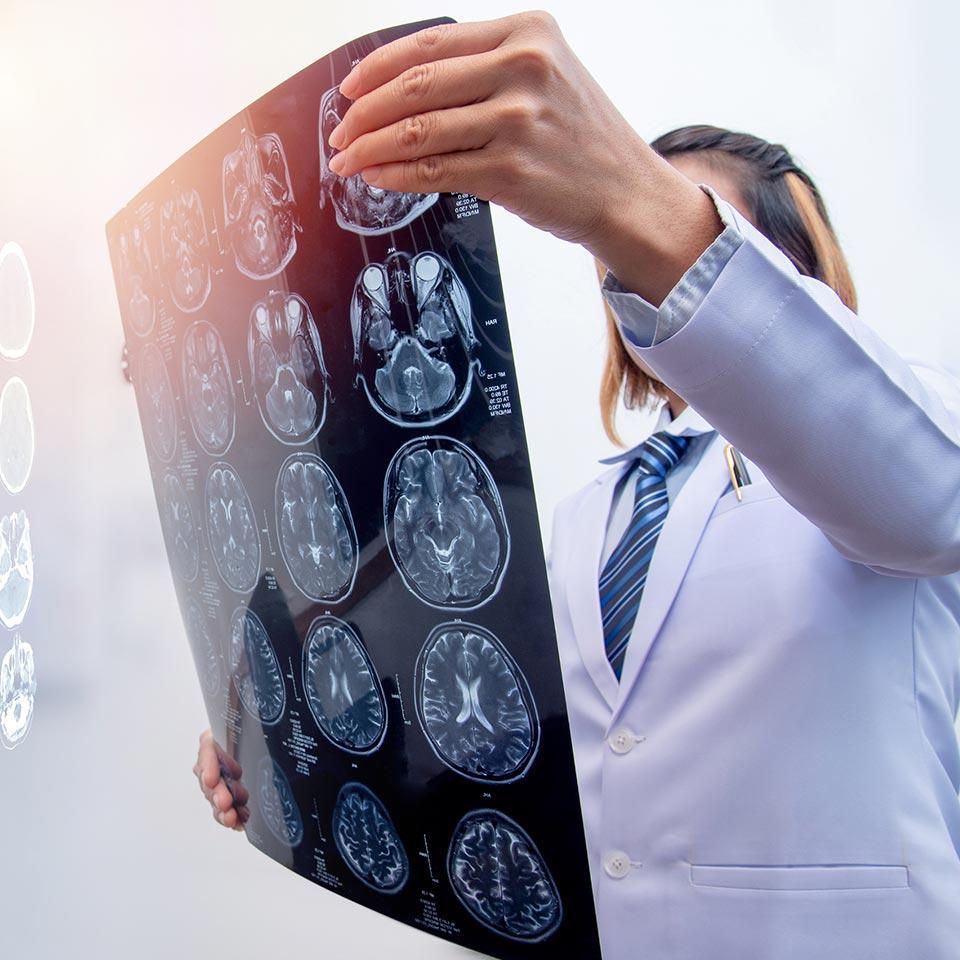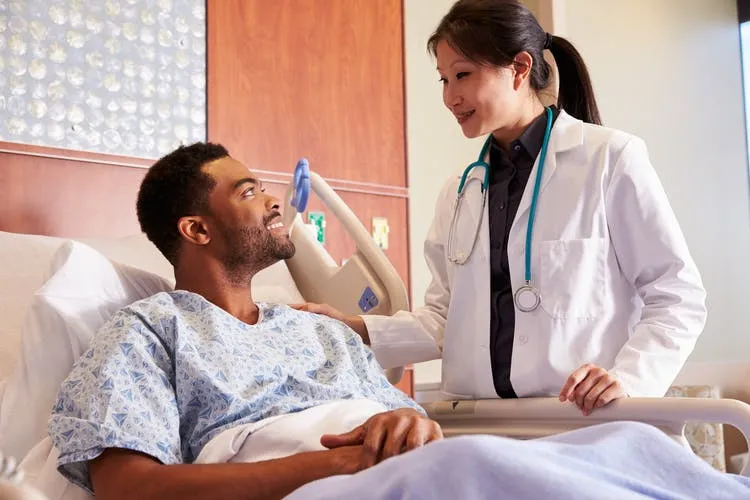Traumatic Brain Injury (TBI):
A Cutting-Edge Treatment Program
Schedule Your Initial Consultation and Learn More About the Brain Biochemistry Optimization Program

Advanced Brain Biochemistry Optimization for Traumatic Brain Injury (TBI): A Cutting-Edge Treatment Program
Traumatic Brain Injury (TBI) can profoundly impact brain biochemistry, leading to cognitive, emotional, and physical challenges that can persist for years or even be permanent. For many patients, traditional treatments are largely ineffective, focusing primarily on symptom management rather than addressing the root causes of biochemical and structural damage. Sadly, even symptomatic treatments tend to fail.
Our cutting-edge Brain Biochemistry Optimization program is a revolutionary and novel approach designed to repair, regenerate, and optimize brain health using the latest advancements in imaging, diagnostics, and regenerative medicine.
This comprehensive program is designed to offer some real hope to TBI patients and their families seeking improvements beyond the conventional, enabling a cutting-edge pathway to recovery and improved quality of life.
Understanding TBI and Brain Biochemistry
Traumatic Brain Injury results in physical damage to brain tissue, disrupting neural connections and impairing biochemical pathways that regulate cognitive function, emotional balance, and overall brain health.
Our program seeks to address these underlying factors through a comprehensive, science-driven strategy, incorporating personalized care on a concierge level which integrates advanced diagnostics, regenerative medicine, and holistic support.
Oxidative Stress
Free radicals accumulate, leading to cellular damage and impaired brain function.
Hormonal Dysregulation
TBI can disrupt the hypothalamic-pituitary axis, altering hormone levels and impacting energy, mood, and cognition.
Neuroplasticity Impairment
The brain’s ability to rewire and heal is often hindered after injury due to inflammation and scar tissue formation (fibrosis).
Neuroinflammation
Chronic inflammation in the brain damages neurons and slows the healing process. We see this in the setting of brain injury.
Neurotransmitter Imbalances
Injuries disrupt the production and function of essential brain chemicals like dopamine, serotonin, and GABA.
Core Components of the Program
NK exosomes contain a powerful array of selectively cytotoxic proteins, including:
1. Comprehensive Diagnostics and Imaging
Understanding the precise nature of brain injuries is crucial for effective treatment. Our program employs the most advanced diagnostic tools available:
- High-Resolution Brain Imaging, which may include (depending on the individual)
- Diffusion Tensor Imaging (DTI): Maps neural pathways to identify microstructural damage.
- Functional MRI (fMRI): Assesses areas of the brain involved in cognition and emotion.
- PET Scans: Measures brain metabolism and inflammation.
- Quantitative EEG (qEEG): Analyzes brainwave activity to detect abnormal patterns linked to TBI.
- Advanced Blood Biomarkers: Tests for inflammatory cytokines, oxidative stress markers, neurotransmitter levels, and hormone imbalances.
- Neuropsychological Testing: Evaluates cognitive function, memory, attention, and emotional regulation to track recovery progress.
2. Regenerative Medicine for Brain Repair
Regenerative therapies are at the forefront of TBI recovery, aiming to repair damaged brain tissue and restore function. These may include:
- Stem Cell or stem-cell derived exosome Therapy: Using mesenchymal stem cells derived from safe and ethical sources, this approach promotes neurogenesis, reduces inflammation, and enhances repair.
Administered intravenously, inhalational or inhalational in the majority of the cases. - Exosome Therapy: Exosomes derived from stem cells which carry growth factors, anti-inflammatory molecules, and genetic instructions to help damaged neurons, fostering repair and regeneration.
- Hyperbaric Oxygen Therapy (HBOT): Increases oxygen delivery to injured brain tissue, stimulating healing, reducing inflammation, and improving neuroplasticity in the earlier setting or in conjunction with stem cells.
3. Biochemical Rebalancing
TBI disrupts the delicate balance of neurotransmitters, hormones, and metabolic pathways in the brain. Through individualized treatment plans, we restore biochemical harmony:
- Neurotransmitter Support: Targeted amino acid therapy, specific supplements, and nootropics (brain-boosting compounds) are used to regulate dopamine, serotonin, and other critical neurotransmitters.
- Hormonal Optimization: Addressing deficiencies in thyroid hormones, adrenal function, sex hormones (testosterone, estrogen, progesterone), and others to restore energy, mood, and cognitive sharpness.
- Anti-Inflammatory Protocols: Advanced nutraceuticals like omega-3 fatty acids, curcumin, and resvertrol combat neuroinflammation.
Strategic diets, such as keto to eliminate pro-inflammatory foods and promote brain-friendly nutrients. - Oxidative Stress Reduction: Antioxidant therapies, such as glutathione infusions and coenzyme Q10, are used to neutralize free radicals and protect brain cells.
4. Enhancing Neuroplasticity and Cognitive Recovery
The brain’s ability to adapt and recover after injury—known as neuroplasticity—is central to TBI rehabilitation. Our program may integrate:
- Transcranial Magnetic Stimulation (TMS): Non-invasive stimulation of targeted brain regions to enhance connectivity and cognitive function.
- Cognitive Rehabilitation Therapy: Structured exercises and activities to retrain the brain and improve memory, focus, and executive function.
- Brainwave Entrainment Therapy: Using sound and light frequencies to normalize brainwave patterns disrupted by TBI.
- Physical Activity and Exercise Programs: Tailored to stimulate neurogenesis and improve blood flow to the brain.
5. Holistic and Lifestyle Interventions
Recovery is not only about the brain but the whole person. Lifestyle modifications are a critical component of long-term healing:
- Sleep Optimization: Improving circadian rhythms with melatonin therapy, light therapy, and sleep hygiene protocols.
- Nutritional Strategies: Anti-inflammatory, brain-supportive diets rich in healthy fats, antioxidants, and essential vitamins and minerals.
- Stress Management: Mindfulness-based stress reduction, meditation, and biofeedback reduce cortisol levels and support brain healing.
- Social and Emotional Support: Addressing the psychological toll of TBI through counseling, support groups, and integrative therapies like acupuncture or yoga.
Beyond Conventional Medicine:
Why Choose Our Program?
Our Brain Biochemistry Optimization program is designed for patients who seek a more advanced, personalized approach than what traditional medicine typically offers. Key advantages include:
State-of-the-Art Techniques
We utilize the latest breakthroughs in regenerative medicine and diagnostics.
Individualized Care
Every treatment plan is tailored to the patient’s unique needs and injury profile.
Proactive Monitoring
Continuous tracking of biomarkers and progress ensures optimal results.
Comprehensive Approach
From advanced therapies to holistic lifestyle interventions, we leave no stone unturned.

Who Can Benefit?
This program is ideal for individuals with:
Mild to Moderate TBI seeking recovery beyond standard care.
Persistent post-concussion symptoms, including brain fog, headaches, or mood disturbances.
Cognitive decline or memory issues related to brain injuries.
A desire to proactively optimize brain health for better long-term outcomes.
Take the First Step Toward Healing and Recovery
Traumatic brain injury doesn’t have to define your future. With cutting-edge science and personalized care, our program empowers you to reclaim your cognitive function, restore balance, and achieve your highest potential.
Contact us today to learn more about the Brain Biochemistry Optimization program and schedule your initial consultation. Together, we can chart a path toward lasting recovery and renewal. Remember, the earlier you contact us after brain injury, the better.
